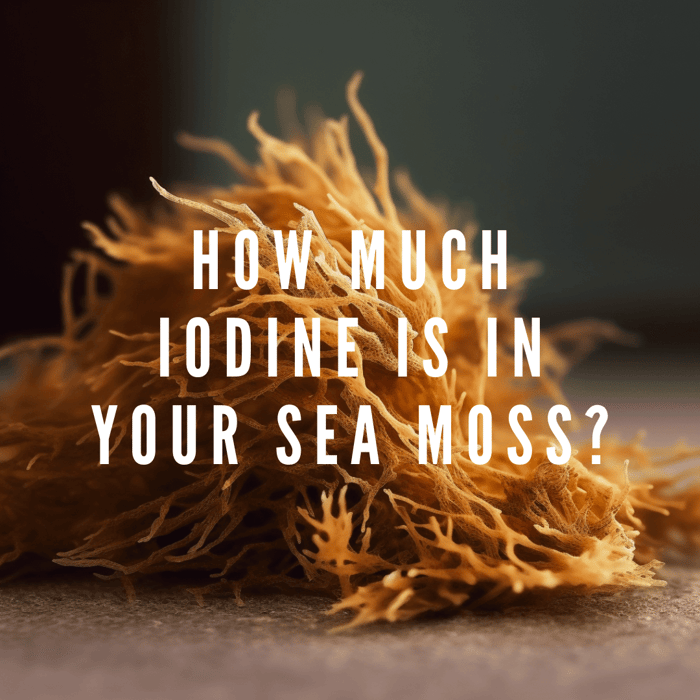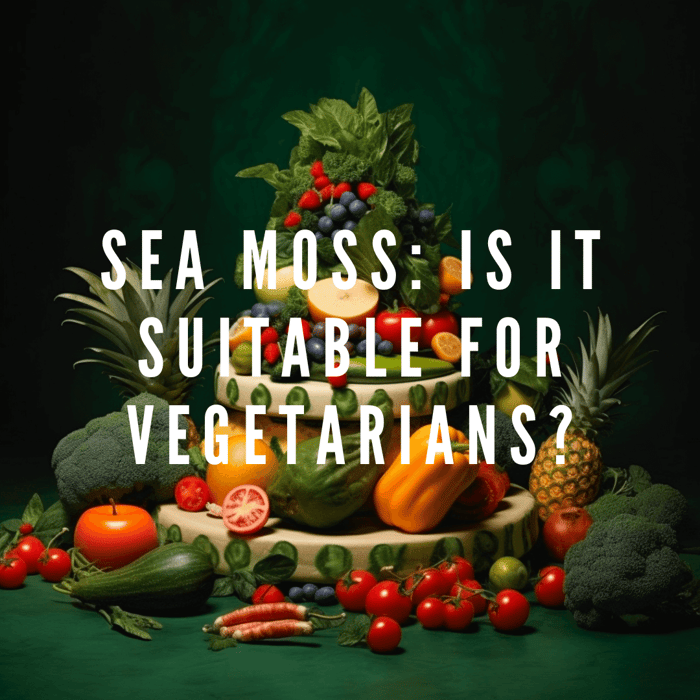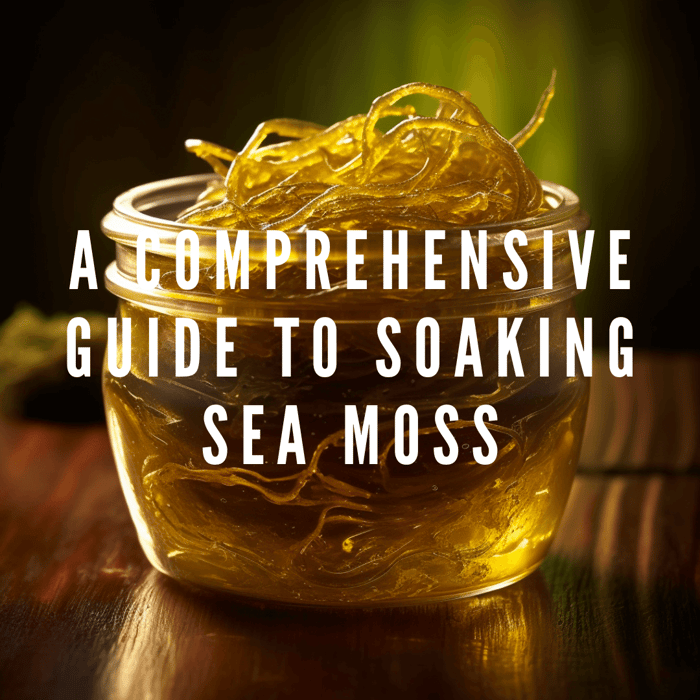Sea moss, a nutrient-rich marine plant, has been gaining popularity for its numerous health benefits. Among its many nutrients, iodine stands out due to its vital role in human health. This article aims to answer the question, "How much iodine is in a tablespoon of sea moss?"
Table of Contents
- Introduction
- Unpacking the Nutrients in Sea Moss
- Iodine Content in a Tablespoon of Sea Moss
- The Importance of Iodine to Human Health
- How to Incorporate Sea Moss into Your Diet
- Common Misconceptions about Sea Moss and Iodine
- Frequently Asked Questions about Sea Moss and Iodine
Introduction
Sea moss has been a staple in the diets of coastal communities for centuries. Recently, it has gained global recognition for its impressive nutrient profile, which includes vitamins, minerals, and antioxidants. One of the most notable nutrients in sea moss is iodine, a mineral essential for thyroid function and overall health.
Unpacking the Nutrients in Sea Moss
Sea moss is a powerhouse of nutrients. It contains 92 of the 102 minerals that our bodies need, including calcium, magnesium, potassium, and, of course, iodine. Iodine is crucial for the production of thyroid hormones, which regulate metabolism, growth, and development.
Compared to other sea vegetables, sea moss stands out for its iodine content. For instance, a study published in the Journal of Food Composition and Analysis found that sea moss contains more iodine than wakame and nori.
| Sea Vegetable | Iodine Content (mcg/g) |
|---|---|
| Sea Moss | 8.9 |
| Wakame | 3.9 |
| Nori | 1.7 |
As you can see, sea moss is a superior source of iodine. But how much iodine is there in a tablespoon of sea moss? Let's find out in the next section.

Iodine Content in a Tablespoon of Sea Moss
Measuring a tablespoon of sea moss can be tricky because the iodine content can vary depending on whether the sea moss is dry or soaked. Dry sea moss is more condensed, so it contains more iodine per tablespoon than soaked sea moss, which expands when hydrated.
To calculate the iodine content in a tablespoon of sea moss, we need to consider the weight of the sea moss and its iodine concentration. For instance, if a tablespoon of dry sea moss weighs around 5 grams, it would contain approximately 44.5 mcg of iodine (5g x 8.9 mcg/g).
However, this is just an estimate. The actual iodine content can vary depending on the specific type and quality of the sea moss. For the most accurate information, it's best to check the nutritional information provided by the sea moss supplier.
The Importance of Iodine to Human Health
Iodine plays a crucial role in our bodies, particularly in the production of thyroid hormones. These hormones regulate many essential bodily functions, including metabolism, growth, and development. Without sufficient iodine, the thyroid may not function properly, leading to conditions such as goiter, hypothyroidism, and developmental issues in children.
According to the National Institutes of Health, the recommended daily intake of iodine for adults is 150 mcg. For pregnant and breastfeeding women, the requirement increases to 220 mcg and 290 mcg, respectively. Consuming a tablespoon of sea moss can contribute significantly to meeting these daily requirements.

How to Incorporate Sea Moss into Your Diet
Sea moss is a versatile ingredient that can be incorporated into a variety of dishes. From smoothies and soups to desserts and sauces, the possibilities are endless. Check out these delicious and nutritious sea moss gel recipes for some inspiration.
However, while sea moss is generally safe for most people, it's important not to consume it in excessive amounts. Too much iodine can lead to thyroid dysfunction and other health issues. If you have a thyroid condition or are taking thyroid medication, it's best to consult with your healthcare provider before adding sea moss to your diet.
For those who cannot consume sea moss, there are other iodine-rich foods to consider, such as fish, dairy products, and iodized salt.
Common Misconceptions about Sea Moss and Iodine
There are many misconceptions about sea moss and its iodine content. Some people believe that sea moss contains harmful amounts of iodine, but this is not true. While sea moss is high in iodine, consuming it in moderate amounts is unlikely to cause iodine toxicity.
Another common myth is that all sea moss products have the same iodine content. In reality, the iodine content can vary greatly depending on the type and quality of the sea moss, as well as the processing methods used. Always choose high-quality sea moss products from reputable suppliers, like Millie's Moss, to ensure you're getting the most nutritional benefits.
Frequently Asked Questions about Sea Moss and Iodine
| Question | Answer |
|---|---|
| How much iodine is in 500 mg of sea moss? | Approximately 4.45 mcg, based on an iodine content of 8.9 mcg/g. |
| Is sea moss high in iodine? | Yes, sea moss is a rich source of iodine. |
| Does sea moss gel have iodine? | Yes, sea moss gel contains iodine. However, the amount can vary depending on the concentration of the gel. |
| How much iodine is in 2 tablespoons of sea moss gel? | The iodine content can vary, but it's approximately 89 mcg based on an iodine content of 8.9 mcg/g. |
Conclusion
In conclusion, sea moss is a nutrient-dense sea vegetable that provides a significant amount of iodine, a mineral essential for human health. While the exact iodine content can vary, a tablespoon of sea moss can contribute significantly to your daily iodine needs. Whether you're looking to boost your nutrient intake or explore new culinary adventures, sea moss is a worthy addition to your diet.
 is here! Shop now, pay later in 4 easy installments
is here! Shop now, pay later in 4 easy installments



